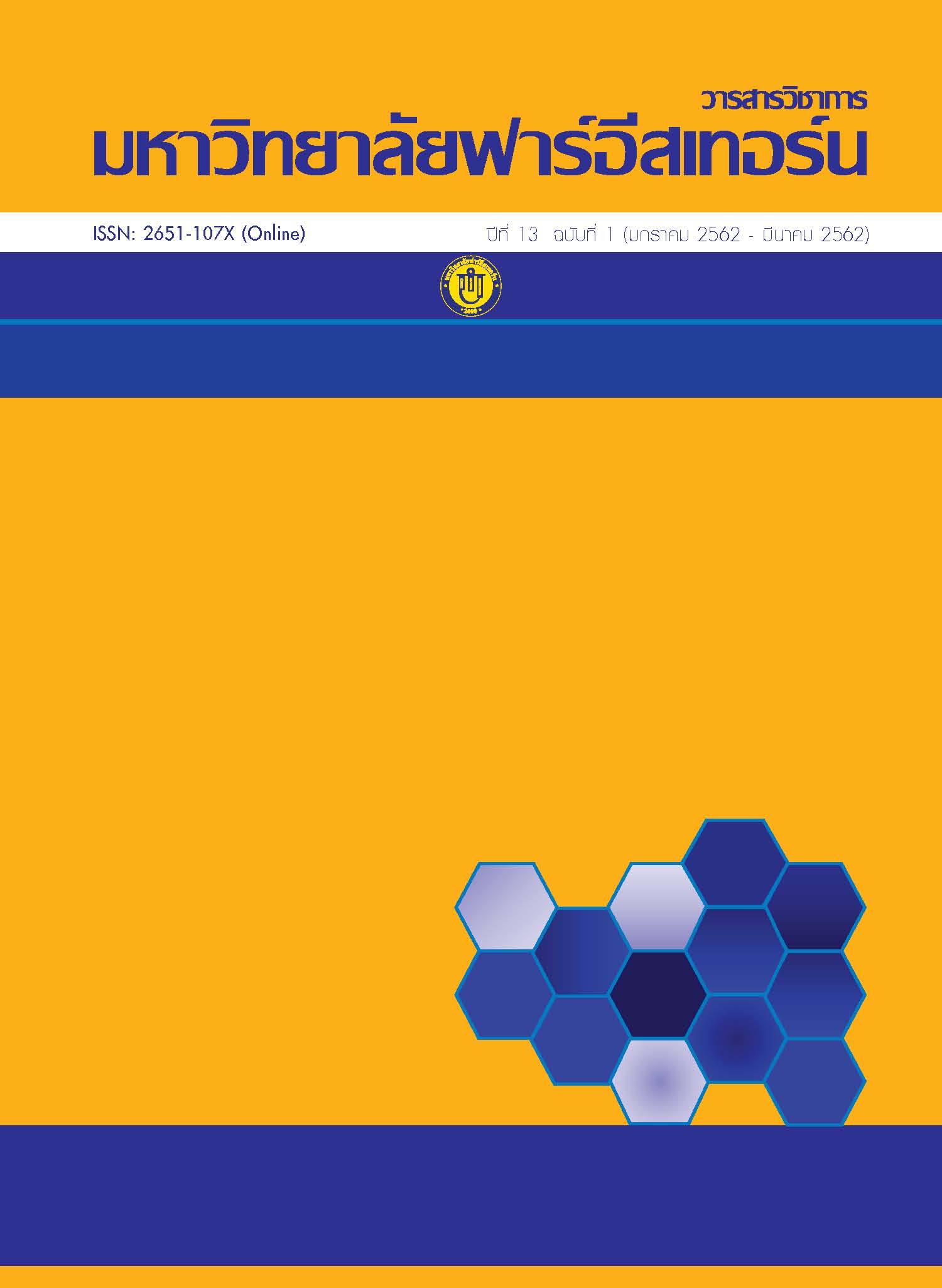Teamwork Perception of International Conference Participants through Salad Bowl Game
Main Article Content
Abstract
The objectives of this study were: 1) to study perception of teamwork and 2) to find the relationship between the goal orientation factor and the emotive action factor after playing salad bowl game. The purposes of this game are to facilitate teamwork, to practice critical thinking, to solve problem, and to listen to others’ opinion. Devices used for playing game are jigsaws which authors created by themselves. Technique of this game is that the players have to find a missing jigsaw to complete their tasks. The subjects of this study were all participants (174) registered at an international conference. Questionnaires were used for asking perception of teamwork. The questionnaire was verified by experts, and the Cronbach’s alpha reliability efficiency was 0.98. Mean, standard deviation, and Pearson correlation were used for data analysis. The results reveal that 1) perception of teamwork as a whole is at the high level (µ = 4.48, SD = .41), in term of the goal orientation factor is at the highest level (µ = 4.50, SD = .41) and the emotive action factor is at the high level (µ = 4.45, SD = .45). 2) There were statistically significant relationship between the goal orientation factor and the emotive action factor at the high level (r = .750, p < 0.01).
Article Details
1. Any views and comments in the Journal of Social Innovation and Lifelong Learning are the authors’ views. The editorial staff have not to agree with those views and it is not considered as the editorial’s responsibility.
2. The responsibility of content and draft check of each article belongs to each author. In case, there is any lawsuit about copyright infringement. It is considered as the authors’ sole responsibility.
3. The article copyright belonging to the authors and The Far Eastern University are copyrighted legally. Republication must be received direct permission from the authors and The Far Eastern University in written form.
References
คณะกรรมการสภาวิจัยแห่งชาติ สาขาสังคมวิทยา.
Fuengfusakul, A. (2003). Identity: theory and concept frameworks review. Bangkok: National Research Council of Thailand. [in Thai]
สุภัชฌาน์ ศรีเอี่ยม. (2554). การพัฒนาอัตลักษณ์นิสิตในสถาบันอุดมศึกษา. วิทยานิพนธ์ปริญญา
ครุศาสตร์ดุษฎีบัณฑิต สาขาวิชาอุดมศึกษา ภาควิชานโยบายการจัดการและความเป็นผู้นำ
ทางการศึกษา คณะครุศาสตร์ จุฬาลงกรณ์มหาวิทยาลัย.
Sri-iam, S. (2011). Student identity development in higher education institutions. Thesis Doctor of Philosophy Program in Higher Education, Department of Educational Policy, Management, and Leadership Faculty of Education, Chulalongkorn University.
[in Thai]
เพ็ชรี รูปะวิเชตร์. (2559). การพัฒนารูปแบบการจัดฝึกอบรมแบบศูนย์การเรียนที่ส่งเสริมความรู้เรื่อง
การทำงาน การสื่อสารข้ามวัฒนธรรมสำหรับนักศึกษาระดับอาชีวศึกษา. วารสารวิชาการมหาวิทยาลัยฟาร์อีสเทอร์น. 10(4), 175-186.
Rupavijetra, P. (2016). Development the model of training by using learning center towards promotion knowledge on cross-cultural management and intercultural communication for students at vocational educational level. FEU Academic Review. 10(4), 175-186.
Lairio, M. ; Puukari, S. & Kouvo, A. (2013). Studying at university as part of student life
and identity construction. Scandinavian Journal of Education Research. 57(2),
115-131.
McNair, L. D. ; Newswander, C. ; Boden, D. & Borrego, M. (2011). Student and faculty interdisciplinary identity in self-management teams. Journal of Engineering Education. 100(2), 374-396.
Nygaard, C. & Serrano, M. B. (2009). Student’s identity construction and learning: Reasons
for developing a learning-centred curriculum in higher education. Journal of
Education Research. 3(3), 233-253.

